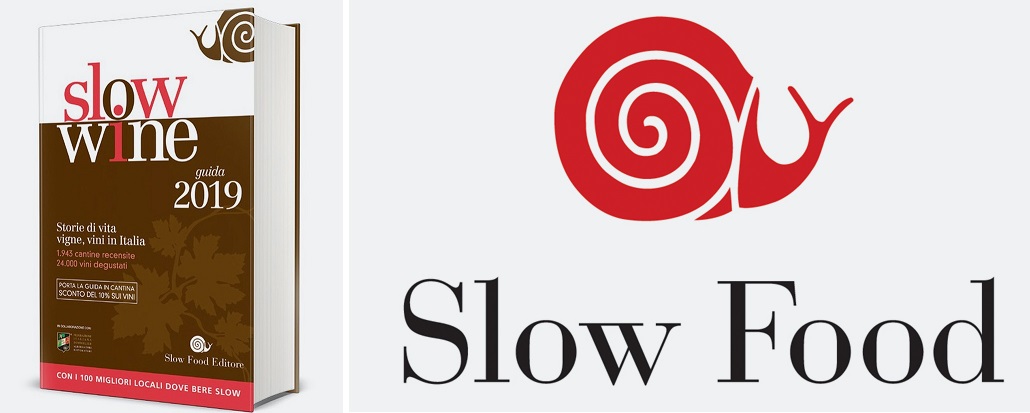The non-profit association with headquarters in the town of Bra in Piedmont, Italy, was founded in 1989 by the Italian journalist Carlo Petrini (*1949), who is still president today. Since the mid-1970s, he had written about the topic of "food and drink" in magazines and was co-founder of Gambero Rosso and co-editor of the wine guide "Vini d'Italia" as well as the World Wine Guide. After 22 years, Slow Food Italy separated from the wine guide "Vini d'Italia" at the beginning of 2009 and left it to Gambero Rosso Holding. The own wine guide "Slow Wine" was developed, which appeared for the first time at the end of 2010. The "Society of Friends of Barolo", founded by Petrini, gave rise to the "Arcigola" association in 1986 and "Slow Food" three years later. Slow Food stands for pleasurable, conscious and regional food and is a counter-movement to the trend of uniform, globalised and pleasure-free fast food. In the meantime, Slow Food has become an international association with over 100,000 members in more than 150 countries on all continents.

Cultivating the culture of eating and drinking
It is a worldwide association of conscious gourmets and responsible consumers to cultivate and keep alive the culture of eating and drinking. Slow Food brings producers, traders and consumers into contact, conveys knowledge about the quality of food and thus makes the food market transparent. One guiding principle for products is the triad "Buono, pulito e giusto = Good, clean and fair". Responsible agriculture and fishing, species-appropriate livestock farming, traditional food crafts and the preservation of regional flavour diversity are promoted. The association's logo is the snail as a symbol of slowness. The aims of Slow Food are: Pleasure is the focus because everyone has a right to it. Quality requires time. Ecological, regional, sensual and aesthetic quality is a prerequisite for enjoyment. Taste is not a matter of taste, but a historical, cultural, individual, social and economic dimension that is certainly open to debate.
Ecological cultivation
Furthermore, the association sees itself as a lobby for taste, for regionally adapted and ecological cultivation, as well as for the preservation of biodiversity and culinary cultures. Slow Food stands for products with an authentic character (regional, seasonal), produced and enjoyed in the traditional way. Food grown, produced, sold or consumed according to Slow Food criteria strengthens regional economic cycles and reconnects people to their region with their eyes, ears, mouths and hands. In addition to the international umbrella organisation, there are sub-organisations in many countries, such as Germany (8,000 members) and Austria (800). In convivia (Tafelrunden), you can take part in locally organised events as a paying member (in addition to the supraregional, national and international ones). In the meantime, there are many hundreds of such Tafelrunden worldwide, which are deliberately relatively small. The organisation's own publishing house produces over 70 books, some of them periodical, and the magazine "Slow", which is also published in German.
Scope of activities
The scope of Slow Food's activities has expanded enormously in the meantime. The association is also the organiser of important trade fairs in the food sector such as "Cheese" in Bra and "Salone del Gusto" in Turin. Parallel to the "Salone del Gusto", there was the "Terra Madre" meeting for the first time in 2004, which brought together 4600 farmers from all over the world under the patronage of Prince Charles. In 2006, the second meeting was extended to include top chefs and scientists. Intensive educational work is being done on the topics of taste education and sensitisation to regional specialities and cuisine, the risks of fast food and industrially produced or modified food, as well as factory farming, agricultural factories and the dangers of monocultured agriculture with increased use of chemicals and technological inputs. Intensive political lobbying takes place for consumer protection, against genetically modified food, against the use of pesticides, and commitment to environmental protection.
Ark of Taste
The "Ark of Taste" is an international Slow Food project. Local and regional foods, livestock and crop species that do not exist on the market under current economic conditions or have "gone out of fashion" are to be saved from oblivion by the Ark campaign, protected from the threat of industrial agriculture and the food industry and preserved for future generations. The "passengers" have to pass a strict entrance examination. It must be proven that the taste quality is first class, the product has a long history, has an identity-forming character for the region and sustainable potential, as well as being existentially endangered. Genetically manipulated products and animal husbandry that is not appropriate to the species prevent them from being included in the Ark. So far, 1,000 foods from 50 countries worldwide have been accepted. Among them are wines and grape varieties such as the Heurigen wine Wiener Gemischter Satz, the Uhudler wine and the variety Roter Veltliner (Austria), the varieties Frühburgunder and Tauberschwarz (Germany), as well as the hybrid wine"Cuvée des vignes d'antan" from Jacquez (France).
Voices of our members

Using the encyclopaedia is not only time-saving, but also extremely convenient. What's more, the information is always up to date.
Markus J. Eser
Weinakademiker und Herausgeber „Der Weinkalender“